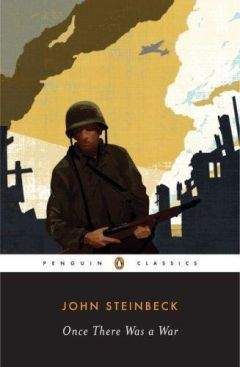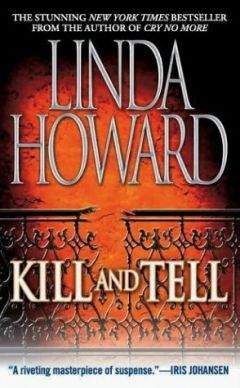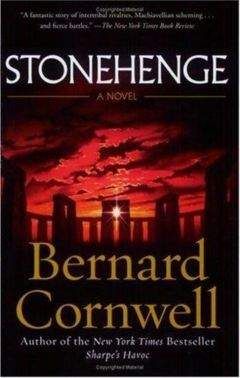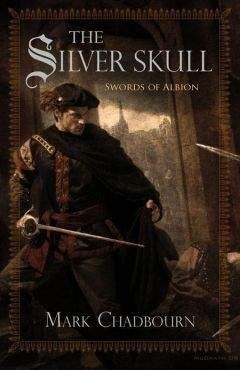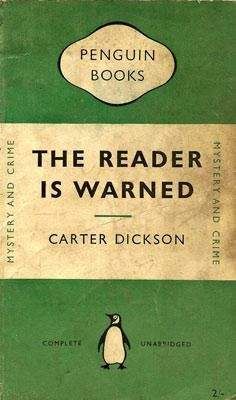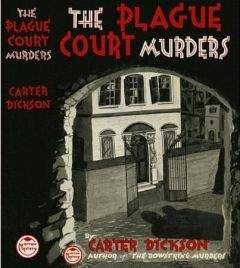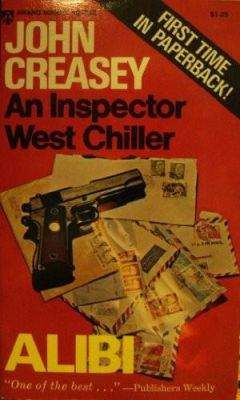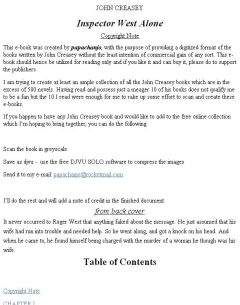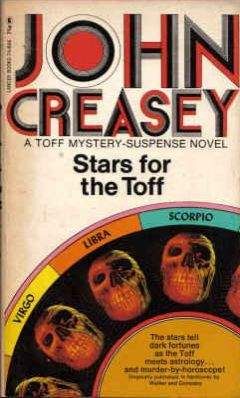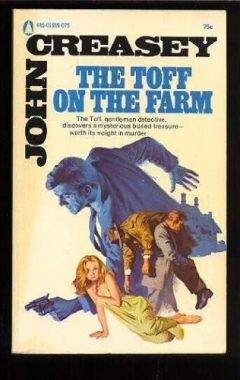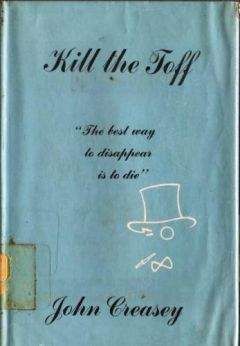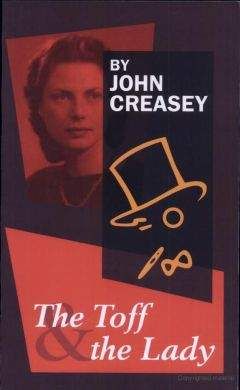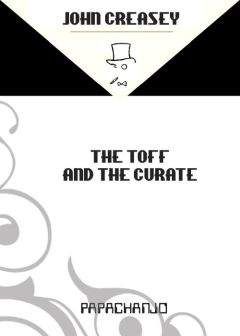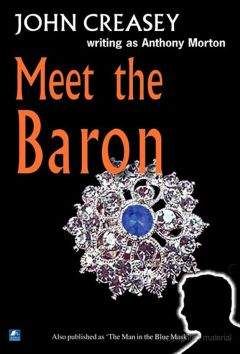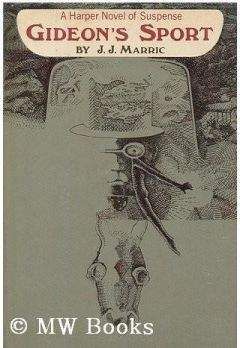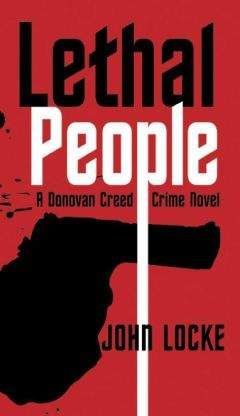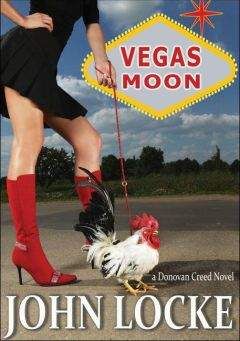John Lescroart - Son of Holmes
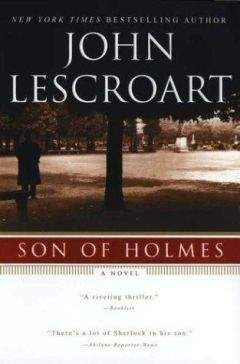
Скачивание начинается... Если скачивание не началось автоматически, пожалуйста нажмите на эту ссылку.
Жалоба
Напишите нам, и мы в срочном порядке примем меры.
Описание книги "Son of Holmes"
Описание и краткое содержание "Son of Holmes" читать бесплатно онлайн.
“But we’re talking specifically here about Tania.”
“I understand that. Don’t become upset, Jules. I would expect you to defend her, to be blind to the striking singularity of one woman fitting in so easily with five or six different men. It is certainly odd enough to be labeled a hard fact and to warrant some explanation.”
“She has always . . .”
“Not true! I understand that she only began attending regularly within the past year or two.”
“With her husband in the area, how could she?”
He smiled, his point won, and finished his coffee in a gulp. “I merely state that it is worthy of investigation, and I intend to look into it. There are other issues that I would prefer for the time being to keep to myself, but I assure you that I view them as significant, or potentially significant. But come. This is a small avenue of pursuit, and we have much more to discuss. Shall we table Madame Chessal for the moment?”
Reluctantly, but seeing the wisdom of the suggestion, I agreed and told him I had the plans for the arsenal with me. He asked me to wait until he’d dressed and then I could report at length. Excusing himself, he went into his quarters.
Almost immediately I heard two voices coming from his rooms. One his, the other female. The woman sounded angry and became more so as they talked. Finally, after several minutes of increasing volume, came the sound of a hand slapping down violently on a table or desk, and Lupa’s voice, not loud, but devastatingly authoritative: “Enough! Leave! We’ll discuss this later.” Then he appeared back in the kitchen.
“Bah,” he said, sitting down, “I’m sorry about that, but that woman nags me much too often. Do all women insist on scheduling time for their men?”
“Not to my knowledge,” I said.
“Well, I won’t have it.” He leaned back and closed his eyes for a moment, his face clearing almost instantly. He had excellent control. “Now, then, those plans.”
I took the crumpled and hastily drawn sketch from my pocket, and together we looked at it. I explained some of my impressions of the place, pointing out that the arsenal was impossible to enter forcibly. In my years as an agent, I’ve learned to recall almost completely events, conversations, and impressions, which was lucky, since he asked me to recount everything that had happened the day before since I’d met Tania for the funeral. He leaned back with his eyes nearly closed, and didn’t move at all as I talked.
He interrupted me three times. Once to ask if I could identify the man I’d seen meet Paul. Once to ask me to repeat everything I could remember Ponty saying from the time we met him until we were shown the explosives anteroom, and again to ask if I was certain that the rock-throwing incident had been a prank, to which I answered no, I wasn’t certain of anything.
When I’d finished, he said, “Pulis?”
“As far as I know, he spent the day consoling his wife.”
“He also spent the better part of the afternoon reading a newspaper at the train station,” he said. “Can you think of why he might have done that?”
I shook my head no.
“You should call on him, I suppose. You haven’t aroused suspicion with any of them, have you?”
“No. I’ve decided to have another beer gathering next Wednesday, though I’m not sure where it ought to be. That will give everyone a chance to get back together, restore our confidence in one another, lay some suspicion to rest. Most of them seem to want to believe it was suicide.”
“Rubbish!”
“I know, but let them think that for a time. It won’t make them wary of me when I ask questions, or at least less wary than if they thought I suspected one of them had killed him.”
“Satisfactory,” was all he said. I asked him if he’d had any trouble with the police.
“No.”
“They haven’t been around?” I asked.
“I didn’t say that. I merely said I haven’t had any trouble with them. I wouldn’t speak with them. Charles told them I had gone shopping and I would call them back at my convenience. Then they wanted to search my quarters, which of course would have been intolerable, so Charles said he didn’t know where I lived, and they believed him. One thing I don’t need at a time like this is the police. I assume they’re content to believe it was suicide also?”
I shrugged, since I really didn’t know.
“All right,” he said. “I’ll try to avoid being bothered by them, though when they find out I live here, they’ll be around snooping for cyanide and whatnot.”
“They haven’t been much of a bother to me,” I said. I found the police no more competent than he did, but I saw no reason to antagonize them gratuitously.
“You are a rich man, Jules. You have standing in this area. You are, in short, more or less above suspicion. I am poor, a foreigner, unknown—in short, a perfect scapegoat. Of course I could demonstrate my innocence if given enough time, or I could save that time by delivering the murderer. And time is short.”
So saying, he took a large silver watch from his vest pocket. All the times I had seen him, he’d been wearing suits of drab brown. He never looked seedy, but neither would well-dressed be an adequate description. Today was no exception, though he had slipped a vest over the pale yellow shirt. He wore no coat while indoors, and when he cooked he wore no tie. Glancing at his watch, he started.
“Nearly nine o’clock! I must be up on the street.” He was peeved, I supposed at me for coming down and causing him to vary his schedule. When we’d gotten settled outside, I commented on the watch, which I hadn’t seen before.
“Yes, it is lovely,” he said, removing it again. “A gift from my parents, one of my few real treasures. Would you like to see it?”
He handed it across to me. It was rather larger than was the fashion and seemed to be made of very pure silver, judging from the weight. Turning it over in my hands, I noticed the inscription on the back, or rather the pair of initials, S. H. & I. A. and the date 1897. I was curious, but said nothing and gave it back to him.
“One of my fondest dreams is to someday own a house where I can keep things,” he began. “Traveling has so long uprooted me that I think someday I would like a home where I could keep the things I love. I could easily envision myself almost totally sedentary. But now this watch is the only symbol I have of all I would like to have.” He sighed.
“I’m surprised to find you so materialistic.”
“Not at all. I want nothing more than what the simplest shopkeeper has: a house, a sense of place, a few loved possessions. So often a man’s surroundings become a man’s background. A man who runs with thieves becomes like a thief. Of course,” he went on, stopping to order the first of his day’s beers, “it’s not absolute, but I’d like a house made for my ideals, so that I might grow into it.”
He paused while the beer—my beer!—arrived. Charles had thoughtfully brought out two bottles, and we each had a glass.
“Take yourself, Jules. You are an aristocrat. No, no, don’t object—that’s not so bad. You own land, a house. Your interests are your own, not dictated by the exigencies of survival. And it shows. The other night, even drunk, you paused to wipe off a table before setting anything on it, even when it was a patently futile gesture. No, the way you live reinforces the way you act; the way you act finally becomes the way you are.”
By this time, I was anxious to be off to visit Henri. I had probably been much like Lupa when I’d been younger. He was so enthusiastic about ideas, about ideals. I couldn’t remember ever having known anyone so opinionated, but he wasn’t so much objectionable or obnoxious as time-consuming, and as he’d said, time was short. I finished my beer and rose to leave as Charles brought out another one for Lupa, along with a clutch of newspapers. He looked up briefly.
“Will I see you?”
I had barely nodded when he looked back down, engrossed in his reading.
Henri lived in a large apartment overlooking his shop. It was a good distance from La Couronne, so I decided to take a hansom and enjoy the warm morning. I remember not being overly concerned with whether taking a hansom was a particularly aristocratic thing to do or not. It was a pleasant ride over the cobbled streets, and in a quarter of an hour I found myself in front of Henri’s door. His eldest son was minding the shop, which was not surprising. I was a regular customer because of my beer supplies, and the sons knew me slightly. Some flaw in my character keeps me from remembering the names of children, and this boy was no exception. So I entered the small and cluttered store and approached the gangling youth with a warm smile of recognition.
“Bonjour, Monsieur Giraud.”
Likewise, it seems to me that all children remember my name and glory in greeting me this way.
We shook hands.
“Good morning. Is your father here?”
“He’s above.”
“Thank you.”
Smiling to myself, I walked over to the door that opened onto the staircase and knocked. The boy had followed me over and he turned the knob for me.
“That’s all right. Go on up.”
Henri sat at the kitchen table, leaning back in his blue work pants and apron. None of the other children were about, though noises behind me suggested their presence somewhere in the flat. Madame Pulis was cutting onions and putting them in a large skillet over the fire. I stood in the archway for a moment looking at the scene before knocking on the doorjamb.
They both turned at once. Madame Pulis’s eyes were filled with tears, I assumed from the onions. Henri, seeing me, immediately jumped up and put out his hand in greeting. He seemed even more nervous than usual.
As we sat at the table, we watched his wife finish cutting the onions, and then he ordered her from the room. My Greek friend, now slumping slightly over the table, hands clasped tightly in front of him, was a study in anxiety. His hair was disheveled, as though it had been combed earlier but something, perhaps nervous hands, had disturbed it. There was an unfamiliar tic over his right eye, which further enhanced his harried mien. He looked a wreck.
When his wife had gone, he looked at me heavily.
“What’s wrong, Henri? You look terrible.”
He got up abruptly and paced back and forth slowly across the kitchen, pulling—jerking, really—all the while at his mustache. “It all started yesterday with Renee. You remember? At the funeral? She was crying a lot? Well, it really got to her, all the folks there were treating us as if we were guilty of something, and so she was crying. She cries easily.” He stopped walking and looked at me imploringly.
“All that was fine. If you know Renee, you’d know crying is no special event. But some plainclothes flic at the funeral thought it was strange that one of the ‘suspect’s’ wives should even bother coming, much less be in tears, so he thought we might know something and followed us home.” He sat down again. “You know me, Jules. I get nervous easily and, when he came around, I got rattled. And with Renee crying all over, I just walked out. I know, I know, a mistake. I snuck out, really. I’m a fool.
“So then he started in on Renee. What were my feelings about Marcel? How well had she known him? You know how insinuating they can be, and he was, but she’d only met Marcel maybe twice, so what could she say? Finally, he asks if he can look around the house, and she says we have nothing to hide, so he goes poking into everything and finds the supplies for Robert—you know my second son? Anyway, he finds Robert’s supplies for taking photographs, which is his hobby, and right there in a drawer is plenty of cyanide to kill Marcel and a hundred other people, so he says, ‘Uh-huh, interesting,’ and leaves. So when I got home at about six o’clock, there’s no dinner and the house is dark, and she’s left a note that says she’s gone to stay with her mother and taken the kids, and I can come get her later.
“Not wanting to wait for her to come back, I decided to go over there and find out what happened, and who do I run into on the street but this same flic, come to ask Renee some more questions. He looks at me for a minute and then says, ‘You’re not a French citizen, are you?’ ”
He paused for a moment. “I’d like a drink.” He rose and got two glasses, filling one nearly to the top with pastis. In the other glass, he put a standard shot and added water. He grinned nervously, handing me the second glass. “Straight, it’s just like ouzo. Makes me feel at home.” He pulled again and again at his mustache, taking slow little sips of the drink. Every few seconds, he scratched at his head. “Merde! Where was I?”
“Are you a French citizen?”
“That’s right, French citizen. Well, I told him that my papers were in order, that he could see for himself if he came back to the house, but he just started asking more questions about everybody. You, Georges, Paul, even Tania. Wanted to know if I knew where that fellow Lupa lived. I told him I didn’t know anything, I didn’t know Lupa, I hardly had known Marcel. Then he started going on again about how well had Renee and Marcel known each other, and it got fairly heated. He said he was going to check all the other houses—Tania’s, yours, Paul’s—and then get back to me, so I’d better find my wife and be available.”
“What did you do after that?”
He was loosening up, as he always did when he drank. “Well, I went to get Renee. Then we all came home and tried to sleep. Goddamn it, Jules, can’t a woman even cry at a funeral?”
He put his hand down, looking on the verge of tears. I put my hand lightly on his shoulder.
“Take it easy, Henri. It’s just the way of investigators. They bother you, they try to find breaks in stories. Don’t worry.”
But I was worried. Cyanide was not so common a poison that anyone else would likely have it.
“Where did you go yesterday afternoon,” I asked, “when you went wandering around?”
“Oh, I don’t know. Just around. You know, when I’m upset, I walk.” As if to prove his point, he got up and started pacing again. I didn’t want to press it, so I changed the subject.
“I’d like to have everybody meet again next Wednesday. That’s the real reason I had for coming up. Do you think you can make it?”
“I don’t know,” he said simply. “At your house?”
“Probably not. I’ll send you a note. I thought it would be good for us all to try and . . . well, you know.”
He nodded. “Will Lupa be there?”
“Yes. Do you suspect him?”
“I’d be lying if I said I didn’t. How well did he know Marcel?”
I laughed. “You thinking of joining the police force?”
He smiled weakly. “You’re right,” he said. “I’m sorry, but it’s just that you get to suspecting everyone. But how well do you know him?”
“Fairly well.”
“All right. Renee!” he yelled suddenly. “The onions are burning.”
Подписывайтесь на наши страницы в социальных сетях.
Будьте в курсе последних книжных новинок, комментируйте, обсуждайте. Мы ждём Вас!
Похожие книги на "Son of Holmes"
Книги похожие на "Son of Holmes" читать онлайн или скачать бесплатно полные версии.
Мы рекомендуем Вам зарегистрироваться либо войти на сайт под своим именем.
Отзывы о "John Lescroart - Son of Holmes"
Отзывы читателей о книге "Son of Holmes", комментарии и мнения людей о произведении.





